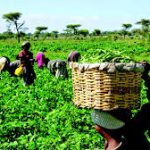Nigeria, with its vast landmass and diverse ecosystems, has long been associated with agriculture, including a robust livestock industry. Livestock farming has been integral to the country’s economy, providing livelihoods for millions and contributing significantly to food security. However, as Nigeria marches into the future, the livestock sector faces a myriad of challenges and opportunities. Understanding the dynamics shaping its future is crucial for sustainable development and ensuring its resilience in the face of evolving socio-economic and environmental factors.
Challenges Facing the Livestock Industry:
1. **Climate Change:** Nigeria, like many other regions, is experiencing the effects of climate change, including erratic rainfall patterns, prolonged droughts, and extreme weather events. These factors directly impact livestock production, affecting pastures, water availability, and animal health.
2. **Inadequate Infrastructure:** The livestock industry in Nigeria grapples with inadequate infrastructure, including poor road networks, limited access to veterinary services, and unreliable electricity supply. These deficiencies hamper productivity, increase post-harvest losses, and impede market access.
3. **Disease Outbreaks:** Diseases such as Foot-and-Mouth Disease (FMD), Peste des Petits Ruminants (PPR), and Newcastle Disease pose significant threats to livestock health and productivity. The lack of effective disease surveillance and control measures exacerbates the risk of outbreaks, leading to economic losses for farmers and disrupting supply chains.
4. **Low Productivity:** Despite its potential, Nigeria’s livestock sector suffers from low productivity due to various factors, including poor breeding practices, limited access to quality feed and veterinary services, and inadequate extension services to disseminate best practices among farmers.
Opportunities for Transformation:
1. **Technology Adoption:** Embracing technological innovations such as precision farming, digital platforms for market access, and remote sensing for pasture management can enhance productivity, improve market efficiency, and mitigate risks associated with climate change and disease outbreaks.
2. **Value Addition and Processing:** Investing in value addition and processing facilities can help maximize returns from the livestock sector. Establishing meat processing plants, dairy factories, and leather tanneries creates employment opportunities, enhances product quality, and facilitates access to higher-value markets.
3. **Policy Reforms:** Enacting supportive policies and regulatory frameworks can create an enabling environment for the livestock sector to thrive. This includes incentives for private sector investment, strengthening veterinary services, promoting research and development, and implementing measures to mitigate climate change impacts.
4. **Capacity Building:** Investing in human capital development through training programs, extension services, and knowledge transfer initiatives can empower farmers with the skills and knowledge needed to adopt best practices, improve animal husbandry techniques, and enhance productivity sustainably.
5. **Market Diversification:** Exploring domestic and international market opportunities can reduce reliance on volatile commodity markets and create additional revenue streams for livestock farmers. Initiatives such as promoting indigenous breeds, organic certification, and geographical indications can differentiate Nigerian livestock products in the global marketplace.
In Conclusion:
The future of Nigeria’s livestock industry hinges on its ability to adapt to changing socio-economic, environmental, and technological landscapes. While challenges abound, opportunities for transformation abound as well. By leveraging technology, promoting value addition, enacting supportive policies, investing in human capital, and exploring new markets, Nigeria can unlock the full potential of its livestock sector, ensuring sustainable livelihoods for millions of farmers and contributing to national development goals. With strategic planning, collaboration, and innovation, Nigeria can navigate the complexities of the future and emerge as a powerhouse in the global livestock industry.





